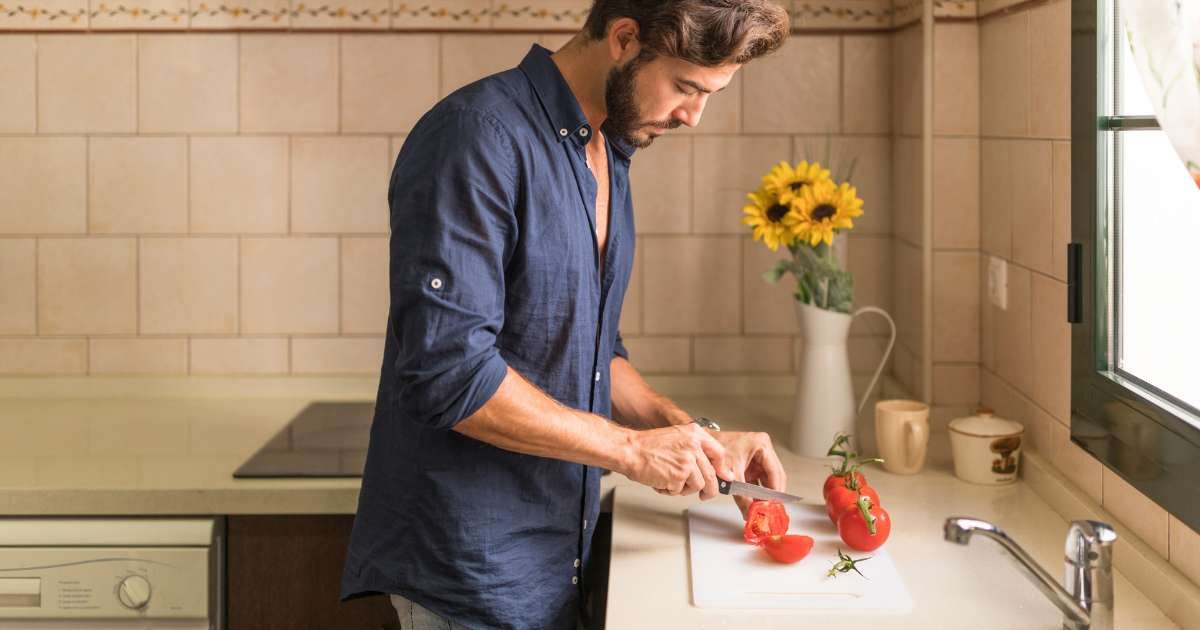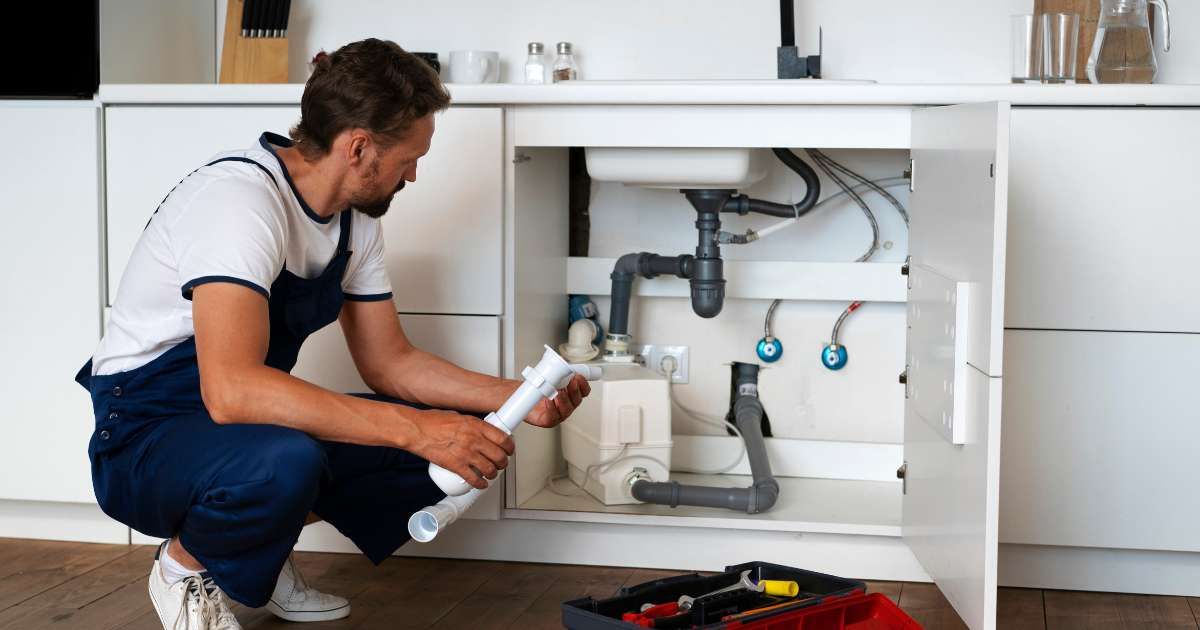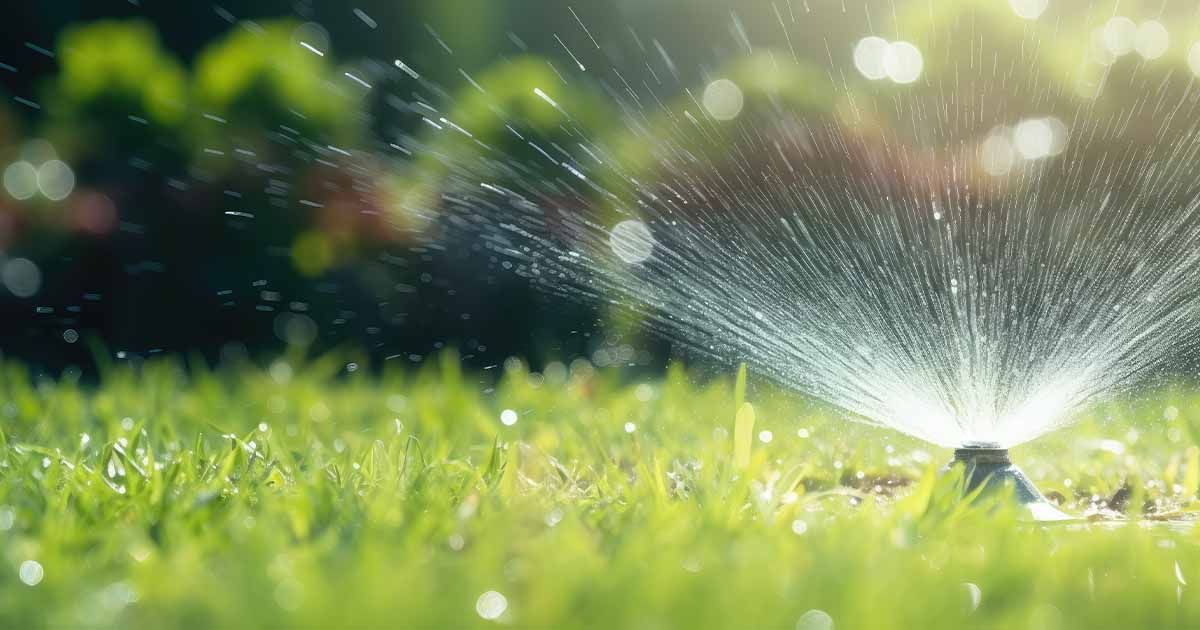
If you live in Kitchener, it is quite possible that you have bought a home or are thinking of buying a home that was built between 1995-2007. Homes built during this period may contain a hidden danger: Kitec plumbing, which poses a serious risk of significant water damage.
As a homeowner, it’s important to understand the effects Kitec plumbing may have on your house, and what you can do to stay on top of it.
Here, we explain how to identify if you have Kitec plumbing in your household and its associated risks, along with the necessary steps to protect your home from water damage, and costly repairs. Let’s be proactive and save your current or future home from becoming an expensive inconvenience in the future.
Advance Heading and Cooling is here to help. Do not hesitate to reach out to us for any of your HVAC or plumbing needs, including 24/7 repairs. Our experienced team is just a phone call or email away!
From 1995 to 2007, Kitec plumbing was installed in many homes in Kitchener and across Canada–the reason being that it was a cost-effective product that was easily installable compared to typical copper pipes.
Kitec pipes were manufactured by IPEX Inc. and were purposely made to be marketed as a simpler, and more affordable way to install plumbing.
Kitec plumbing incorporated many materials into their pipes, including metal, plastic, resin adhesives, and brass. The outer layers of the pipes are coloured bright orange for hot water lines and bright blue for cold water lines. Many homeowners and installers liked this approach as it made it easier to distinguish between the two. The materials used to structure the pipes provided a durable and flexible solution that made plumbing seem simpler at the time.
Unfortunately, Kitec plumbing's affordability came at a high price: premature failure and costly repairs. Copper piping, while more expensive upfront, proved to be a far wiser investment in the long run.
In the beginning, Kitec plumbing was well-received and seemingly made good on its promises. However, it didn’t take long for Kitec plumbing to start having issues. After a while, homeowners who used Kitec plumbing found that their pipes were corroding, leading to significant damage to their plumbing.
Due to the volume of these issues, Kitec decided to recall their products in 2005. As of now, homeowners who have never replaced their Kitec plumbing are at risk of costly water damage repairs.

Not sure how to identify Kitec plumbing in your current or future home? We have the answers to help you take preventative action.
One of the only beneficial aspects of Kitec piping is its noticeable colouring: bright orange for hot water and bright blue for cold water lines. Knowing when your home was built, or when piping was installed can also determine if you have Kitec plumbing. Once you’ve found these pipes, you will also see the label ASTM 1281, which proves its identity.
You may be wondering where to look for Kitec pipes in your house. Common places you can look for the tell-tale colours and labels are:
Near your water heater
Under your kitchen sink
In the bathroom
These are the most accessible areas to find out if you have Kitec plumbing.
Colour: Bright orange pipes for hot water and blue pipes for cold water.
Label: The ASTM 1281 is printed on the outside of the pipes.
Year: Kitec piping installations were present in Kitchener homes between 1995 and 2007.
Your water heater is a good starting point for a plumbing inspection. It's often the most accessible place to check what type of pipes are installed in your house. If you’re still unsure, the kitchen sink or bathroom are other places to examine.
If you think you may have Kitec plumbing in your house, and you’re still unsure, it may be best to consult a licensed plumber. Our professionals can accurately define Kitec pipes and help you take action to protect your home from future plumbing issues.
Even though Kitec plumbing was viewed as a less expensive and practical option when it was first introduced, it eventually came with its own set of challenges.
One of the main issues reported is that Kitec pipes and brass fittings are prone to corrosion. The brass fittings may have seemed like a durable option at the time, but their high levels of zinc reacted with the composition of the pipes and caused a build-up of zinc oxide. This buildup limited proper water flow and weakened the fittings.
Additionally, the pipes were prone to corroding on their own. Kitec used an aluminum layer in their piping, inadvertently causing water to react with other elements, leading to deterioration in a shorter amount of time. The combination of corrosion and the expansion and contraction of plastic and aluminum layers from temperature changes eventually caused the pipes to burst.
Recognizing the potential for extensive damage from plumbing failures is key to preventing these costly issues.
Burst pipes can lead to extreme water damage, and expensive repairs, which end up costing more than replacing your plumbing system entirely.
Water damage can affect the structure of your home, ruining walls, floors, carpets, furniture, and valuable possessions.
Chronic leaks can run up your water bill and harbour mold, which puts you and your family members at risk of serious health problems, especially those with breathing problems and allergies.
Given these negative consequences, it is important to address these plumbing issues head-on. Don't wait for Kitec plumbing to wreak havoc on your life. Replacing it now provides peace of mind and eliminates the worry of future damage, health risks, and costly repairs.
Without taking preventative measures, replacing Kitec plumbing can be quite costly. Depending on the size of your home, expenses can range from a few thousand dollars to tens of thousands. With this information, you have the power to save yourself a hefty bill.
Investing in new plumbing largely outweighs the potential costs of damage done to your home, and replacement costs combined. Water damage can lead to expensive household repairs, structural problems, ruined possessions, and the need for mold removal. Now that you are aware of the risks Kitec plumbing may cause, it is in your best interest to replace your plumbing sooner than later, to maintain the integrity of your home.
A class-action lawsuit resulting in a $125 million settlement against Kitec’s manufacturer, IPEX Inc. was a way for affected homeowners to receive compensation for the damages their homes endured. Unfortunately, as of now, the deadline to file a claim against IPEX has passed.
With insurance, however, homeowners who were affected by Kitec’s faulty plumbing may be able to cover the cost of a Kitec plumbing replacement to avoid future water damage expenses.
Contractors may also be held accountable. If your contractor failed to disclose that Kitec plumbing was recalled in 2007, then there may be an option to receive financial compensation. Review your insurance policy and discuss with a legal representative if these aspects apply to you.
If you suspect your home has Kitec plumbing, taking action as soon as possible is the best way to prevent future hassles. Here are the steps you should take:
Look for the bright orange and blue colouring, and the ASTM 1281 label to see if the year your plumbing was installed was between 1995 and 2007. Once you have confirmed, or you’re still wondering if you have Kitec plumbing, you can hire our licensed and certified plumbers to inspect your pipes.
Having a plumber evaluate the current condition of your pipes by determining signs of corrosion and wear will provide you with answers on the urgency of replacing your plumbing. Pipes and fittings that are in poor condition are warned with immediate action to prevent a potential burst.
Investing in proper plumbing can save you big bucks. Discussing with our plumbers about the costs of Kitec plumbing replacement based on your home's size is a necessary step to avoid added expenses associated with water damage and mold remediation.
In the event of a pipe burst or a leak, knowing how to shut off your household water main is a crucial action to minimize damage. To shut off your water supply, find the location of your main shut-off valve and turn the water off. Letting your family members know about this procedure can reduce risks, especially when you're not home.

Regularly checking your plumbing system allows you to stay on top of any minor issues. Minor leaks or long-term wear can affect plumbing fixtures, hoses, valves, and brackets. Stay on top of your plumbing to avoid irreversible damage.
By determining whether you have Kitec plumbing and facing the issues it presents head-on, you can proactively avoid a significant headache. Understanding the risks, replacing old plumbing, and regularly inspecting your plumbing are preventable ways to maintain the upkeep of your home. To learn more about your household’s plumbing, contact Advance Heating and Cooling for our expertise in reliable plumbing services.

Summertime is exciting. Whether you plan to go on vacation or rent out your summer cottage, there are plenty of potential ways to spend the longer, warmer days.
However, before you depart, it's a good idea to get your plumbing situation in order, lest potential pipe issues spoil your summer vacation.
If you plan to leave your residence for several weeks or even months, it's essential to make sure you get your plumbing in order before you go. A myriad of potential issues can arise if you just leave your plumbing, some of which you may not even expect.
After all, plumbing is something most of us take for granted. Our toilets almost always flush with no issue, our water temperature is rarely disrupted, and generally speaking, most of us don't have serious plumbing meltdowns more than maybe once every few years, if at all.
But while plumbing technology has certainly made strides in the last decade, maintenance is always necessary to prevent catastrophic issues in the future.
With that in mind, the pros at Advance Heating and Cooling are here with tips to prepare your plumbing for summer vacation!
Do not hesitate to contact us for any of your HVAC or basic plumbing needs, including repairs for a leak under the sink. Our experienced team of HVAC technicians is one phone call or email away, so don’t be afraid to reach out!

Just like you need a checklist to make sure you've packed everything you need for a vacation, groceries and necessities, or even locations you absolutely must hit on your trip, you need to have a plumbing checklist.
While it may seem like a lot to do before a fun summer vacation, it’s going to save you a lot of potential hassle in the future!
It's important that you have somebody keep an eye on your property to ensure that there are no issues. Even a small leak could become a big issue if someone isn't there to address it, so if you plan to take an extended vacation, have a neighbour or trusted friend/relative check in weekly to ensure all your plumbing is in order.
Make sure they have access to your plumber's number in case there are issues.
Go around to all your plumbing and plumbing appliances for cracks or leaks, and check the hoses, valves, brackets, and the like before you leave for vacation. Pre-emptive measures are a good way to make sure that you aren’t departing with any potential pitfalls ready to pop off.
If you plan to take a very extended leave from your property, turn off the water at the main supply valve. However, if you have a house sitter, this may not be necessary. Keep that in mind before proceeding.
Would you be surprised to know that appliances that are plugged in still use energy, even if they’re shut off? Not to mention, they could be potentially damaged if there’s a short or lightning strike. Plus, you can save money on your utility bill.
Your gutters play a vital role in re-dispersing rainwater away from your property's foundation. However, if they're full of debris or become full of debris, they're not able to do that.
Before you take off for summer vacation, set aside time to clean your gutters or pay to have someone do it for you. While cleaning your gutters isn't the most idyllic task, it will save you a headache in the future.
Did you know that pretty much every drain in your property can build up bacteria over time? If you and your family use them regularly, running water allows you to give them a little rinse.
However, if you plan to be gone for an extended period, bacteria will end up just... sitting there. This can cause gross odours that will linger throughout the house when you come home, and no one wants that.
To prevent this from happening, you can pour a 1/2 cup of vinegar and one cup of water down each drain before you depart.
If you don't flush your toilet for a long period of time, the bowl can develop stains. Therefore, it's suggested you clean them with a bit of bleach before you go on vacation.
It's never good to allow water to sit in your appliances for a long time because it allows mold and mildew to permeate. To prevent this, it's a good idea to drain each appliance.
While there’s plenty of stuff you can DIY, nothing quite provides the peace of mind that a professional inspection does. While it may not be at the top of your priority list, having a professional inspect your property’s plumbing can not only quell potential concerns, but they could catch problems before they arise. A pro can offer you valuable insights and give you a rundown of best practices and provide advice on how to care for your plumbing system before you go away. This can save you money, time, and a serious headache when you come back from your vacation, so this is a step the pros at Advance Heating and Cooling highly recommend!
Whether or not you plan to leave your home for an extended period doesn't spare you from the potential pitfalls of summertime plumbing woes. Unfortunately, as fun as the summer is, it can have potential problems. Here, we'll give you a heads-up on potential issues you should look out for as summer approaches.
During the summertime, water heater issues become a homeowner's potential nightmare. The summer heat's intensity can cause serious stress on the tank and plumbing system, leading to cracks. As well, heavy hot water usage during summer can strain the system and cause it to fail.
A lack of insulation can be another root cause of water heater problems during the summer. To make sure your water heater doesn't fail out, watch for both wear and tear on the insulation and replace if necessary. You can also have a professional look it over.

Your outdoor plumbing (such as sprinklers and hoses) can be a bit tricky in the summer sometimes. The intense heat and surge of water usage can cause damage to underground pipes, causing flooding to affect your yard and/or basement. Any damaged parts must be addressed immediately to help keep your system running smoothly throughout the summer months.
You can also have a pro ensure that all connections are secure and that no extra water is being wasted. This could be important to do before you head out for any trips if you intend to have your sprinkler system run while you’re gone.
Using your dishwasher and garbage disposal more during the summer can be a potential plumbing pitfall if they're not properly maintained. The additional strain on your plumbing system can lead to clogs, backups and more. You can avoid this by not overloading your dishwasher and making sure too much debris isn't building up in your washer. It's also beneficial to do regular maintenance on your washing machine.
Garbage disposals can also be quite prone to issues during the summer. To avoid this, it's best to run cold water through your garbage disposal because hot water can cause grease to stick to blades more easily. It's also important not to overload this system with too much food at once, lest issues arise.
With the arrival of heavy thunderstorms this season, the risk of basement flooding due to sump pump issues escalates. A malfunctioning sump pump can lead to unexpected floods, causing significant damage.
To safeguard your home, keeping the area around your sump pump clear of debris and dirt buildup is crucial. Furthermore, ensure that your pump is adequately powered to handle the influx of water from frequent summer rainstorms. Regularly inspect your sump pump to guarantee it is functioning optimally.
In addition to sump pump concerns, sewer line backups pose another seasonal challenge. Increased usage and various factors can contribute to clogs, leading to overflows, backups, and costly repairs.
To mitigate sewer line problems, adopt proper disposal practices for fats, oils, and grease. Avoid flushing large items down the drain that are not suitable for toilets. Regular inspections of your sewer lines throughout the season can identify and address potential issues before they escalate into serious problems.
If you’re ready for summertime and are looking forward to going away, it can be beneficial to do a little bit extra before you depart to ensure that your plumbing is in order. Book a consultation with Advanced Heating and Cooling for all your plumbing needs!
